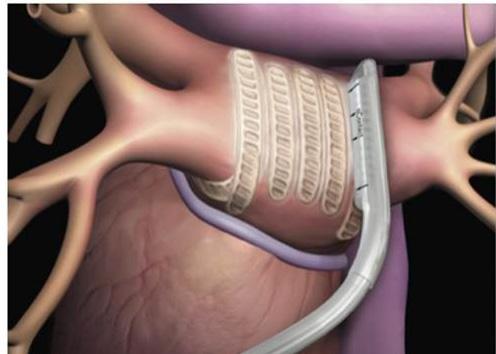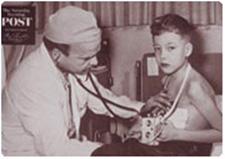
3 minute read
Dr Boon Lim MA, Does AFib cause Heart Failure?
Does Atrial Fibrillation (AF) cause heart failure? or does heart failure cause AF?
Dr Boon Lim, MA, FRCP, PhD
Consultant Cardiologist and Electrophysiologist Honorary Senior Lecturer, Imperial College London, Hammersmith Hospital
The answer to both questions is yes.
Atrial fibrillation (AF) is the most common cardiac arrhythmia, and a strong risk factor for developing AF is the presence of heart failure. With advances in cardiovascular medicine, particularly in the effective treatment of coronary artery disease, including rapidly-treated heart attacks, the prevalence of heart failure in an aging population is increasing.
There are common risk factors for development of heart failure and AF. These include ischaemic heart disease, diabetes and hypertension. However the presence of AF itself is a risk factor for developing heart failure, with a three-fold increase in HF developing in patients who have AF.
Likewise, patients who are in established heart failure also have a much higher likelihood of developing AF, which in turn reduces the heart’s pumping efficiency, which leads to further deterioration of symptoms of heart failure, including shortness of breath, dizziness and fatigue.
How do you diagnose AF in heart failure?
In patients with existing heart failure, development of palpitations which feel like irregular or rapid heartbeats, as well as worsening symptoms of shortness of breath or fatigue should prompt a pulse check. If you feel an irregular heartbeat, then you should suspect AF. The diagnosis of AF can be confirmed by means of a 12 lead electrocardiogram (ECG). However, some patients with heart failure also have pacemakers or implantable cardiac defibrillators (ICD). If this is the case, you should normally be able to contact your pacemaker team who perform testing on your device to check if the device shows that you are in AF. The third way you could
check is to get a mobile ECG recording device (i.e. AliveCor) which can link directly to your mobile phone providing a direct recording of your heart rate and rhythm.
You can purchase an Alivecor device through our online shop or by calling +44 (0)1789 867502
What do you do if you have heart failure and suspect you may have developed AF?
Get a diagnosis as soon as possible. If you have a health care professional that you can make contact with, such as a heart failure nurse, a local pacemaker clinic, or your GP, please arrange to see them as soon as possible and confirm your rhythm with a 12 lead ECG. Prompt treatment of newly diagnosed AF may help prevent deterioration of heart failure symptoms.
What are treatment options of AF in heart failure?
AF should be treated in the usual way – the most important consideration of stroke prevention, and because heart failure is a risk factor for stroke, your doctor would normally recommend that you start on anticoagulation, to prevent blood clots from forming in the heart which may lead to a stroke. The second consideration is rate control – your doctor will check on your heart rate and usually recommend drugs to control your heart rate (most commonly a beta blocker such as bisoprolol). Depending on the duration of AF, and the size of your heart, a rhythm control strategy may well be recommended, in which your doctor may choose to perform a cardioversion (electric shock to restart the heart) or a catheter ablation procedure.
A third option which will only be relevant if you already have a pacemaker is for your doctor to perform an ablation procedure of your AV node, which is the main electrical conduit between the atrial (top) chambers and the ventricles (bottom) chambers of the heart. In this instance, ablation of the AV node will disconnect the top from the bottom chambers of the heart, making it impossible for your heart to beat quickly on its own accord in AF. In this instance, patients then become dependent on their pacemaker for normal heart functioning.









